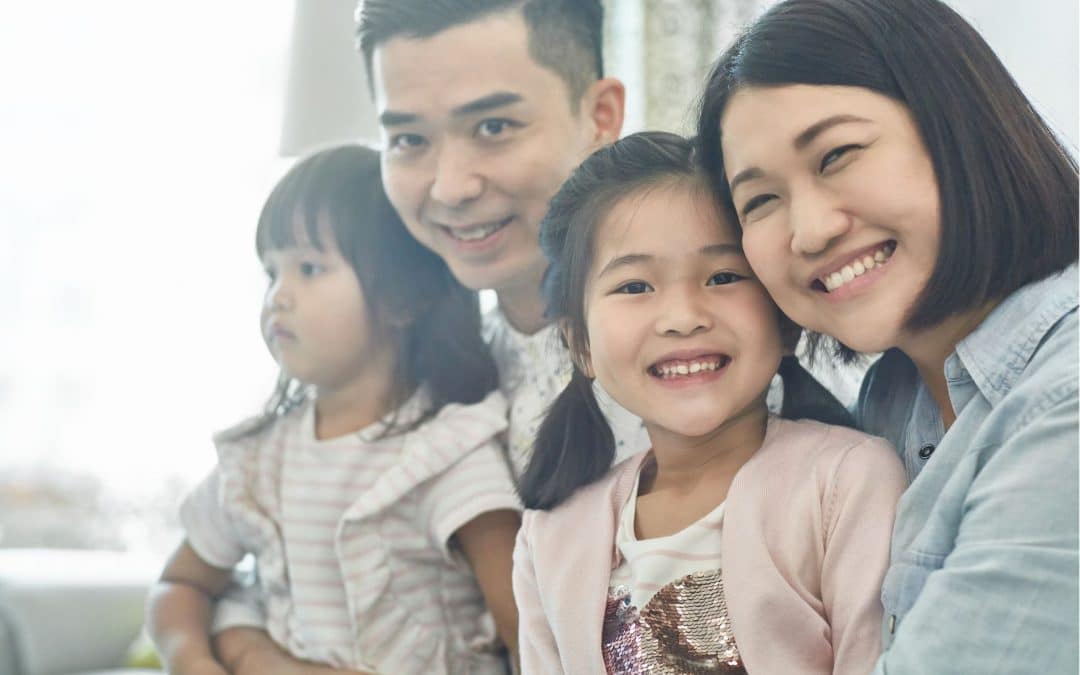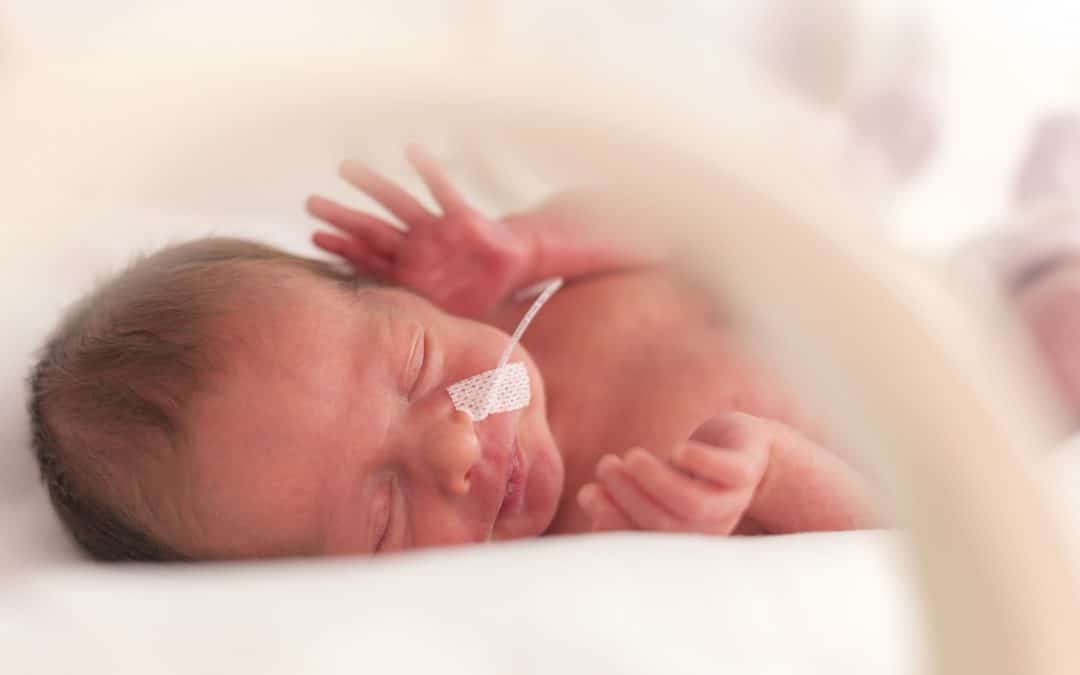
by Alliance VITA | January 20, 2023 | News, Maternity, Population
Demography in China, what is the reality of birth rate support?
The support for birth rate, including for a third child, announced in 2021 by the Chinese Politburo, has not yet produced any real effect on demography.
The National Statistics Bureau has announced a drop in the population, the first in 60 years. At that time, a devastating famine, which started in 1959, had caused some 36 million deaths, according to a book by Yang Jisheng, the historical journalist.
The current drop announced is of 850,000 inhabitants. Projections indicate that India is set to become the most populated nation in the world from this year.
The UN, in its projections for 2019 predicted a peak in birth rate for China around 2031. However, the rate of fertility has continued to fall and has established at 1.15 in 2021. The scenario of a demographic winter for China seems to be confirmed. The economic and social impacts are expected to be far-reaching: equilibrium between the active and retired populations, pressure on the care for the aged, decrease in economic productivity, weight of China in the geopolitical arena etc.
Certain media describe this drop as “paradoxical”. The relaxing followed by the official ending of the brutal single child policy dates back several years. However, the factors listed to explain the low level of fertility are jointly cultural, social and economic, and cannot be countered by mere incitation by the public authorities. Rise in the cost of living, inadequate housing, habit of small families, pregnancies deferred to a later date, more women taking higher education, but also a reduction in the desire to raise children according to surveys of young Chinese. He Yafu, a Chinese demographer, noted in an article in Le Monde “The reduction in the number of women of childbearing age, has reduced by 5 million per year between 2016 and 2021“. The aging of the population is a self-sustaining phenomenon.
Birth rate in France
In France, where the current debate on the pensions system has a demographic aspect, the Budget Minister recently stated in the press that “birth rate support is not at all a taboo subject for the government.”
But more than a birth rate policy, the stake is a culture where the welcoming of a child, from the very outset of pregnancy, is sustained and valued. This is a challenge in many nations, quite apart from the Chinese case.
The policy of the single child in China and its consequences
The policy of the single child, introduced by Deng Xiaoping in 1980, was relaxed in 2013, with no resulting increase in the rate of births: of the 11 million couples potentially concerned by this reform, a mere 620,000 asked for such authorisation. In 2015, the plenum of the Central Committee announced that all couples would be authorised to have two children from 1st January 2016. The Chinese approach therefore remained particularly administrative and coercive. The Chinese Health Minister established a report on the results of tens of years of control, estimating the number of abortions at 281 million between 1980 and 2010. A forced sterilisation policy had also been implemented.
The impact of this demographic policy has had deep repercussions. The official announcement underlines the economic angle. In 2010, two active adults shared the burden of one economically dependent person (child or pensioner). Current projections show that in 2050, China will have some 250 million active workers less and each active worker will have to bear the burden of nearly one economically dependent person. A book published in 2017 by Isabelle Attane, a research worker at INED (French National Institute for Demographic Studies), already identified the risk in China of “becoming old before becoming rich.”
But the birth limitation policy also had many social effects, such as the imbalance of the Man/Woman ratio with 107 men for 100 women in 2015, whilst in France there are 92. This imbalance has detrimental effects in itself, such as the trafficking of women.
The first reactions in the media and the social networks seemed to indicate that this new voluntarist directive by the Chinese authorities would not necessarily achieve results. Many factors are listed: the absence of support for mothers, the cost of housing and education, the difficulty in trying to reconcile family and professional obligations for women, the reduction in marriages, the mentality inculcated by decades of birth limitation policies etc. An article in the New York Times mentioned the results of an on-line poll by the Xinhua agency on the question “Are you ready for the 3-child policy?”. Of the 22,000 replies, 20,000 chose the answer “I do not envisage it”. It does not appear that a new “baby boom” is likely in that context.
It is particularly astonishing to note the virtual absence of any international criticism of the coercive and highly liberticidal Chinese policy. The Chinese State has intervened excessively for decades in the private and intimate lives of the Chinese people, with no reaction by the international organisations responsible for human rights.

by Alliance VITA | September 10, 2021 | News, Old age and Dependency
Successive promises for reforming the “Advanced Age and Autonomy Act”, have been interspersed with repeated postponements, but now the government has officially defaulted. Regrettably, the French Prime Minister, Jean Castex, did not mention the reform in his official speech announcing the upcoming parliamentary agenda to the Council of Ministers. Instead, he declared that the draft law for financing Social Security (known as “PLFSS”) would include “new measures to reinforce the fifth branch of Social Security” (the branch devoted to autonomy) and will be presented to the Council of Ministers on October 6th. These declarations are extremely disappointing for professionals who worry about the healthcare conditions for the elderly.
Only three months ago, at the beginning of June, the Health Minister, Olivier Véran, declared that the “Advanced Age and Autonomy Act” announced in 2019, could be “presented (during) the summer” so that it could “potentially be examined at the beginning of the school year”. This bill aimed to: “develop longer at-home care for the elderly”, “improve residential care in nursing homes” and include new measures for caregivers.
During the National Conference for the “EHPADs” (Nursing Homes) held on September 7th-8th, the deputy minister in charge of Autonomy, Brigitte Bourguignon, reassured attendees that the “PLFSS” will contain “new and strong provisions” for autonomy in the medico-social sector. But, professionals and industry representatives have expressed disappointment at the bill’s abandonment. The director of “FNADEPA”, a national professional federation that includes directors from over 1,300 establishments serving the elderly, Annabelle Vêques, laments that “a PLFSS doesn’t look nor smell like a real law” considering the urgent need for profound changes in the domain of advanced aging. Jean-Pierre Riso, the federation’s president concurs that “the PLFSS” “will not be able to solve all the problems we have been facing for years caring the elderly, which were accentuated by the pandemic. Unfortunately, it will not address crucial reform challenges, such as governance, social assistance and the role of the elderly in our society” (press release, 09/09/21). The Association of Directors for Serving the Elderly (“AD-PA”) deplores: “once again the government has defaulted on this important issue. The elderly, the professionals and the families who have suffered the full impact of these postponements, exacerbated by the Covid pandemic, are now being abandoned in midstream”. (press release, September 8th ).
Today’s challenges for advanced age are immense. Already, in March 2019, the Libault report estimated that the number of dependent seniors is expected to increase to 2,235,000 by 2050 (1 million more than the 1,265,000 reported in 2015). They also anticipate a significant increase between 2030 and 2040 when the first Baby Boomers reach an advanced age. By the year 2050, the number of people aged 85 and over is projected to increase 3.2 times compared to 2017, and to reach 4.8 million. Currently, one in five French citizens over the age of 85 lives in a nursing home. Each year 608,000 new residents are housed in nursing homes. Due to deep-seated organizational problems, there are widespread staffing difficulties with 63% that admit to having at least one vacant position that has not been filled for 6 months or more.
Half-measures such as recently approved wage increases are insufficient. Provided by the “Ségur de la Santé” provision, nursing home staff received an extra 183 € per month, while the July 2nd amendment (n° 43), revaluated the salaries for in-home services. As the president of the “FNADEPA” concludes: “beyond public funding, the ageing issue needs a thorough societal reform; that impetus must come from the highest level of the government”.
At this point, it remains to be seen how extensive the new “PLFSS” measures will be.

by Alliance VITA | September 10, 2021 | Surrogacy, News
Although surrogacy is illegal in France, the trade show “Désir d’enfant” (Desire for a Child) reopened yet again this year in Paris on September 4th. Last year several associations filed legal suit against these international procreation businesses for openly pushing surrogacy.
To accompany prospective clients this year, on their “journey to parenthood”, as advertised by the San Diego Fertility Center, there are at least 40 exhibitors. Specialized clinics, gamete banks, fertility coaches and even specialists for frozen gamete transfers are all available to provide expertise, techniques, and feedbacks.
To access this trade show which opened in Paris on Saturday September 4th, visitors first had to cross a red line, as a symbol of the ethical red lines being thwarted by the organizers. The red line reminder was set up by the association “Manif pour tous” (The March for All), but other associations such as “Osez le féminisme” (“Dare to be feminine”) were also present protesting the commodification of women’s bodies.
Once inside, visitors have the choice of 20 different topics scheduled in 3 conference rooms while they navigate their way through the numerous vending booths.
Aurelian, Crystal and Clelia from the Utah Fertility Center give advice on how to “create” a family in the USA. As the father of two surrogate children, Aurelian presents the different stages of the parenthood journey in the United States for the “intended” parents. Trying to reassure his audience on what he describes as “a human adventure”, he insists on the importance of a trustful relationship, with the clinic for the medical details, and with the agency for the contract and the relation with the surrogate mother. He continually insists on the importance of the bond created with the surrogate mother despite geographical distances. He describes the growing strength of a relationship throughout the 9-month pregnancy to the extent that he now considers this person to be a full-fledged member of his family. He also emphasizes the legal aspect, which is essential according to Aurelian who repeated several times his need to be reassured about establishing legal filiation once the child is born. When the child was born, his companion and himself felt they were really regarded as parents by the medical team.
Next, Crystal, who is the surrogate mother of Aurelian’s two children, focuses on the different stages of surrogacy while essentially promoting the services of the Utah Fertility Center, for which she is the main coordinator.
Clelia then addresses the legal aspect, by recalling that under French law, exchanging a child for any remuneration whatsoever, is tantamount to buying and selling a child and an infringement on parental laws. Nevertheless, she immediately reassures the candidates for surrogacy explaining that surrogacy abroad and within a legal frame is not criminal and cannot lead to an indictment in France.
Their standpoint is to encourage the “intended” parents to consult a lawyer, at the very beginning of the process, to establish the specifications of the contract and the child’s civil status under French law.
The conference ends with the photo album of Aurelian’s extraordinary adventure with Crystal, the surrogate mother of his two children. His emotions as well as his desire to convince his audience are conspicuous.
Even so, a multitude of questions remain:
What about the relationship established between the surrogate mother and the baby during pregnancy? What about the lasting trauma generated by this pre-planned separation? What about eliminating the mother’s name from the birth certificate, while categorizing two men as parents? What about the commercialization of women’s bodies? What about the great French bioethical principle of the inalienability of the human body? What about contracts with thousands of lines, not to mention the right to request an abortion? What about the confusing and fragmented filiation, composed of a genetic mother on the one side (the egg donor), a surrogate mother on the other, to end up spending his life without a mother?
The“Désir d’enfant” trade fare organizer Anne-Laure Guichard repeatedly insists that their only objective is to provide information to potential parents, thus there are no price tags in site.
But privately, one can learn that a fertility center in Oregon expects to be paid 150,000 € for its’ surrogacy services.

by Alliance VITA | September 9, 2021 | News, Maternity
Recently, the journal Nature published the research from the University of Geneva, which scientifically demonstrates that hearing the mother’s voice significantly alleviated the pain preterm babies experienced when undergoing clinical procedures.
Frequently, babies that are born before reaching full-term must spend time in neonatal intensive care units (NICUs) and may need to undergo several painful clinical procedures. This can also imply lengthy separation from parents.
The study focused on the effect of the mothers’ voice since it is not always feasible for parents to hold their babies in intensive care where they are placed in incubators.
The first author of the study, Dr. Manuela Filippa, with colleagues from the Universities of Geneva and Aosta, and Parini Hospital (Italy) evaluated pain during routine heel sticks to withdraw blood from 20 preterm babies in NICU. The team evaluated the babies’ responses to the procedure in three different settings: the mother speaking to her child, the mother singing to her child, and the mother not being present. To gauge the babies’ pain levels for each procedure the team recorded each infant’s facial expression, heartbeat, and level of oxygen. The three measurements were recorded and subsequently examined by researchers who were unaware of which condition it related to.
The results demonstrate that when the mothers were speaking, the pain levels deemed to be experienced by the babies fell, on average, from 4.5 to 3 on a 21-point scale. According to Dr. Filippa: “for this specific age, this is a significant improvement”.
In addition, the team found the mothers’ speaking to be associated with a significant rise in levels of the hormone oxytocin in the babies’ saliva samples. Dr. Filippa explained that oxytocin is known to be involved in the attachment processes and can also be protective against the effects of pain.
They evaluated the mother’s voice because a baby has a particular bond with his mother and he has become familiar with her voice in the womb. Nonetheless, this does not eliminate the important role of the father, whose voice can also become familiar to the baby prior to birth. Dr. Filippa said they will also to conduct studies on the effect of the fathers’ voice.
The authors acknowledge that the study is somewhat limited due to the small number of babies involved, and that additional tests, notably neurological ones would provide more specific information. However, they consider the results to be promising, stating that: “the key message is that it is very important to involve parents in the early care of their preterm babies, and also in difficult situations like painful procedures, using their voice.” For families and caregivers of premature children, this is a given fact.
According to Charlotte Bouvard, president of the French association “SOS Prema”: “this study proves the obvious”. The association provides daily support to families by working closely with health care teams and public authorities. They aim to ensure that the odds are in favor of premature babies receiving the best possible conditions to develop and thrive in good health. The association’s psychologist, Myriam Dannay, has just published a parental guidebook which addresses each stage of development for preterm babies.
![[Press Release] Constitutional Council: Alliance VITA Calls for a Precautionary Principle in Bioethics](https://www.alliancevita.org/wp-content/uploads/2021/07/Conseil_constitutionnel.jpg)
by Alliance VITA | July 29, 2021 | Bioethics Law, Press Releases
In a decision rendered on July 29th, the French Constitutional Council rejected all the points of contention raised by a group of parliamentarians who had referred the country’s new bioethics law to deliberation.
For Alliance VITA this crucial decision regarding the highly controversial authorization of human animal chimeras and transgenic human embryos is incomprehensible. Why does the Constitutional Council refuse to issue any protective guarantee to prevent the new bioethics law from leading to eugenics?
How can the Constitutional Council nonchalantly exclude human beings from the precautionary principle along with everything which undermines the integrity of the human species?
Alliance VITA is now appealing to President Macron and the Parliament to extend the scope of the precautionary principle for the environment, in order to include bioethical matters and the protection of human beings.
* A recent IFOP survey carried out in June 2021 revealed that a significant number of French are basically unaware of the bioethics’ law contents. The survey results reveal their wish to have the precautionary principle applied to bioethics. 75% of the people surveyed want to set limits on the research which threatens the integrity of the human species and to put a ban on manufacturing human/animal chimeras and on genetic modifications of human embryos.”





![[Press Release] Constitutional Council: Alliance VITA Calls for a Precautionary Principle in Bioethics](https://www.alliancevita.org/wp-content/uploads/2021/07/Conseil_constitutionnel.jpg)